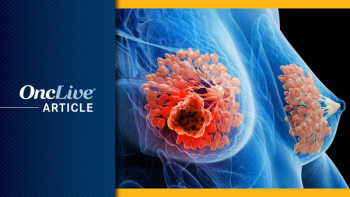
Final Thoughts on Progress in Breast Cancer Research
Transcript:Adam M. Brufsky, MD, PhD: It has been great, as usual. It has been extremely informative. I’ve learned a lot. But before we end this discussion, I’d like to get closing thoughts from each of our panelists. Dr. Arteaga, closing thoughts?
Carlos L. Arteaga, MD: Well, we live in a most exciting time in breast cancer, and I’m torn between 2 stories. But the one that I would put at the top is the CDK4 inhibitor story. To me, that has been such a transformative therapy that’s putting tumors through a block that we can call Darwinian, and I think this creates an opportunity and a responsibility for us to write the book of what breast cancer looks like. Because that’s going to dictate our approach to those patients. I would anticipate, based on the data we’ve seen, that the adjuvant trials with these drugs are going to be amazing.
Adam M. Brufsky, MD, PhD: Great. Dr. Baselga?
José Baselga, MD, PhD: Well, I think it’s very exciting, what we have discussed today and all these new options. I’m a little bit overwhelmed on the complexity of all of this in how we are going to be making clinical decisions. Practicing physicians and ourselves, how are we going to cope with all these data? So therefore, I would say that I’m excited, but overwhelmed, by the complexity of all of this.
Adam M. Brufsky, MD, PhD: Dr. Blackwell?
Kimberly L. Blackwell, MD: Well, if José is overwhelmed, I’m going to have a downright panic attack. My answer would be that I’m pretty excited about the OLYMPIAD trial. We’ve had olaparib. We’ve heard about single-agent activity for a long time. I think the study was done in the right way. It wasn’t necessarily adding a bunch of stuff. It was a head-to-head trial with 3 different commonly used chemotherapies, and we saw a benefit in the BRCA mutation carriers. And to me, this is an example of precision medicine or personalized medicine at its finest. You have a mutation, we have a drug that has activity in your tumor, and it’s better than chemotherapy. So for me, that plenary presentation at this week’s ASCO is going to be very exciting.
Adam M. Brufsky, MD, PhD: Great. Debu?
Debu Tripathy, MD: Well, I’m very excited that we’re making progress on many fronts with different subtypes of tumors. I think the lesson learned is that some of the approaches that we thought were not going to be paying off—like monoclonal antibodies or immunoconjugates, which have actually been around for quite some time—are finally starting to pay off as we start to design well-done studies with correlative studies. So I guess the message I would like to give everybody out there is that participation in clinical trials and contributing tissue for those of you who open clinical trials are each very, very important. It should be a part of the standard of care to do everything you can do either open or refer patients to clinical trials. This is the only way we’re going to move the bar.
Adam M. Brufsky, MD, PhD: Denise?
Denise A. Yardley, MD: I think the future horizon has just gotten brighter and brighter with all the presentations. I can think back to ASCO years ago, and at this point, I think it’s challenging to try to really make sure that you take away all the different messages and nuances of treatment from the clinical trials, while overall there may be positive findings or maybe not. But then, we’ve got ways of identifying subgroups of patients within that. We’re having to learn to extrapolate these treatment options for those patients. And so I think the menu is getting broader and broader. There continue to be paradigm shifts. The OLYMPIAD trial may put the PARP inhibitors first and chemotherapy second. We’re seeing these novel targeted agents and seeing patients get just targeted therapy without chemotherapy. So I think the challenge is trying to keep up with all the changes in the landscape of oncology.
Adam M. Brufsky, MD, PhD: Well, I agree. Again, thank you all for your contributions to this discussion. On behalf of our panel, we’d like to thank you for joining us, and we hope you found this Peer Exchange® discussion to be useful and informative. Again, thank you all for listening to us.
Transcript Edited for Clarity




































